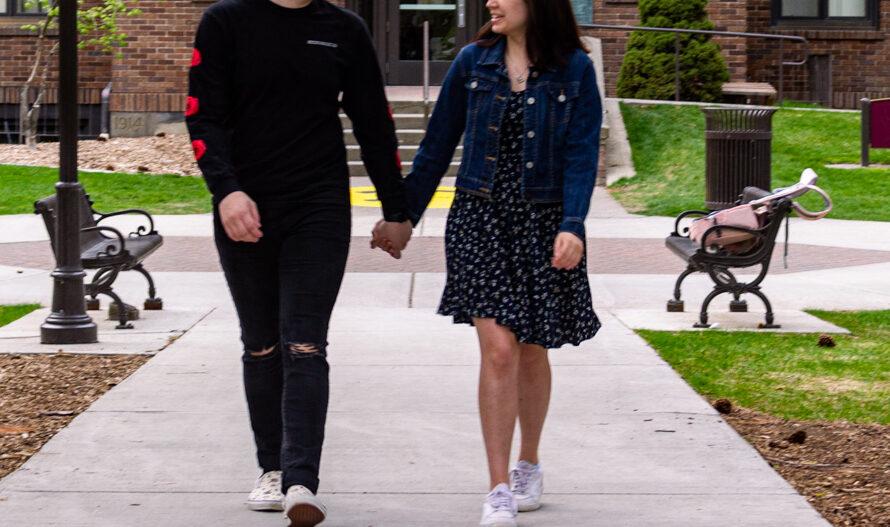By: Nicole Harris, opinions editor

“This whole story is completely true.”
“Except for all the parts that are totally made up.”
Shondaland’s newest hit “Inventing Anna” begins with this disclaimer – the words “totally made up” written in red to suggest the thin line between truth and fiction.
Then why do we consider this a true crime series?
True crime is formulaic, presenting a case to its audience by revealing a crime clue by clue, all while asking its audience to make educated guesses about who is guilty and who isn’t.
When the crime isn’t solved, it is all the more tempting to pull out that cell phone and search away for some type of answer. “Inventing Anna” is no different.
Even when a crime is solved, is there ever enough information to explain away that uncomfortable feeling that comes with consuming true crime?
Perhaps surprisingly, our interest in crime stories is nothing new. Some of the earliest crime stories were published in 1705 according to The Public Domain Review. These stories were compiled into a book called “The Newgate Calendar” (pronounced nougat), which at the time was as popular in England as the Bible.
The book was considered educational, aimed specifically toward children in order to teach them what would happen if one broke the law. Stories were often glorified or melodramatic, and there was little to no distinction between fact and fiction.
As we enter this new era of true crime documentaries and tv series, we are seeing a similar trend.
More and more often true crime is entirely scripted and reenacted by a celebrity cast as the old mode of sit-down interviews mixed with the reenactments made popular by Errol Morris’s 1988 “The Thin Blue Line” becomes less and less common.
Where are we heading in this new age of true crime? If most of what we consume is reenactments with A-list actors, what message does that send?
Reimagined crimes TV shows like “Inventing Anna” eliminate the line between fact and fiction. Instead of shaping a narrative that allows viewers to participate in deciding guilt, the guilt is already assumed. The viewer instead is deciding whether the justification for these crimes is adequate.
This isn’t even considering the financial mess that can be created.
According to The New York Times, Netflix paid Anna Sorokin $320,000 for her life rights—money that was eventually frozen in her accounts by the state of New York under its “Son of Sam” law. According to Insider, this invocation of the “Son of Sam” law is rare. Passed in 1977, this law was designed to keep criminals from profiting off of their crimes after serial killer David Berkowitz was offered money for a memoir by publishers.
True crime has even made its way onto social media platforms like Tiktok, creating a phenomenon called “desktop detection” according to a Conversation article by Tanya Horeck. Horeck suggests that the increase of social media networks along with the increase of view-on-demand content have lent themselves to what she calls, “Google search culture.” We spend an unregulated amount of time on singular cases, with thousands of sources available to us at our fingertips. Of course we feel infallible.
And TV series like “Only Murders in the Building,” which premiered in 2021, only perpetuate this ‘all for fun’ idea with its comedic approach to serious crimes like murder and fraud.
But is this type of consumption ethical?
I like to think of our current mode of interacting with true crime like watching those zit-popping videos. We identify the disgusting abnormality, watch as the pressure builds beneath the skin’s surface, and then revel in its removal. The skin can once again return to normal—never mind the cysts that leave gaping pores that will need further treatment or else they might be re-contaminated.
We want to see something that we can identify with in some capacity. I really do believe we want to feel sympathetic toward the victims of the crimes we consume in true crime media, but I also think we want to exist in a world that is separate from criminals and bad things. We want to be able to turn off the television and get a good night’s sleep without having to consider the consequences of what we just consumed.
In doing so, true crime dehumanizes and others criminals. We can’t imagine a world in which we might be the bad guy.
Ethical true crime recognizes the weight of the stories it tells because it always puts those at the center of the event first. It pushes its audience to not just consume, consume, consume, but to be a part of a larger, ongoing conversation. Horeck suggests that the issue with true crime like “Serial,” “Making a Murderer” and other view-on-demand, emotionally charged presentations of true crime, is the way it positions the viewer as a detective, helping to decide guilt or innocence.
It feeds the participatory media culture that can easily demonize persons like Amanda Knox, who spent almost four years in an Italian prison after she was wrongfully convicted for the murder of her roommate Meredith Kercher.
Knox has spent portions of the last fifteen years in hiding, trying to get away from the never-ending court of public opinion, but has ultimately become a journalist herself, crafting several guest editorials about her experience as a true crime icon and the ethics of participating in true crime stories.
But public opinion is a funny thing. Though we might not like to admit it, we are quick to judge and slow to reconcile new information with those judgments.
Armchair detectives are not bad people, but armchair critical thinkers are better.
Armchair detecting, as it stands, lends itself to othering. It keeps audiences at arm’s length from crime and its victims. It allows audiences to not accept their own inherent biases. Ethical true crime makes us question everything, including ourselves.
In 2021, Tom McCarthy released a new film starring Matt Damon called “Stillwater.” Promotions for the film linked its plot back to what they called the “Amanda Knox saga,” which Amanda Knox responded to in a recent Atlantic editorial.
According to Knox, she was not consulted about the film prior to its making, and the promotion for the film led to an increase in attention toward her and her case.
But Amanda Knox isn’t suggesting we give up our true crime obsession in its entirety. Knox says, “None of us are entitled to revel in other people’s tragedies, no matter how shocking, confusing, unresolved or bizarre they may be.”
According to Knox, we should focus less on exploiting crimes for the sake of their tragic appeal, and more on the stories of people who want to put their stories out there. Listening to these stories can provide us with the insights on human nature that we crave, while also showing us how and where our criminal justice system fails.











